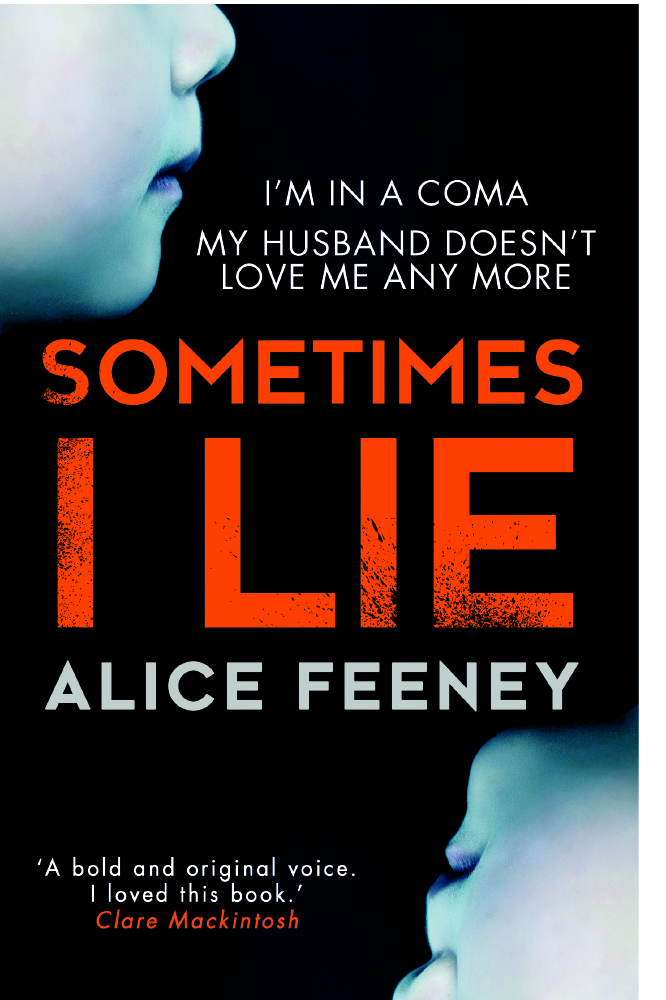When I read a book, I want to believe it, I want to feel like I’m there. When I’m writing, I want my own words to feel just as real to the person reading them.

Alice Feeney
Sometimes I Lie begins with a short note from the protagonist:
My name is Amber Reynolds.
There are three things you should know about me:
- I’m in a coma.
- My husband doesn’t love me any more.
- Sometimes I lie.
I’ve never been in a coma, but I have been in an accident, in which I sustained a serious head injury that left me unconscious. I woke up on a hospital bed, confused and disorientated. I had fractured my cheek bone and one of my eyes was swollen completely shut, so I could barely see. I was terrified. I didn’t know what had happened or where I was, only that a man I did not know, (who turned out to be a doctor), was removing my clothes. I punched him in the face, then promptly passed out again. (I hasten to add this was very out of character – I am not a violent person in real life!)
So, I knew first-hand what it was like to wake up in a hospital with no memory of what happened to you, but I didn’t know what it was like to be in a coma.
I started by reading a lot about comas and coma patients. I trawled through old newspaper articles and stories I found online. It fascinated me how different the experiences I read about were, but it wasn’t enough.
A good friend knew what I was writing about and offered to help. She arranged for me to spend some time at Milton Keynes University hospital. I met with staff who explained in detail exactly what looking after a coma patient entails. I was able to experience being in the room where a coma patient would be cared for. I remember closing my eyes, wanting to hear what Amber might hear; the swish of a nurse’s plastic apron, footsteps and the sound of machines beeping dispassionately close by. I could smell what Amber would smell – a nurse’s body lotion and the food being served on a nearby ward making me feel hungry. One member of the team even performed a resuscitation on a dummy to help me to know what Amber might hear, imagine and feel.
I was also lucky enough to meet with a member of staff who not only looked after coma patients, but also managed their aftercare. She was kind enough to share some of the stories that patients had told her, about how they felt and what they could remember. The experience of spending time at the hospital was invaluable and I’m incredibly grateful to the staff who kindly gave up their time to answer my many, many questions.
I don’t think it’s possible to always write what you know – there are many brilliant books that simply would not exist if all authors stuck to that rule. But you can, and I think should, try to know as much as possible about what you write.


